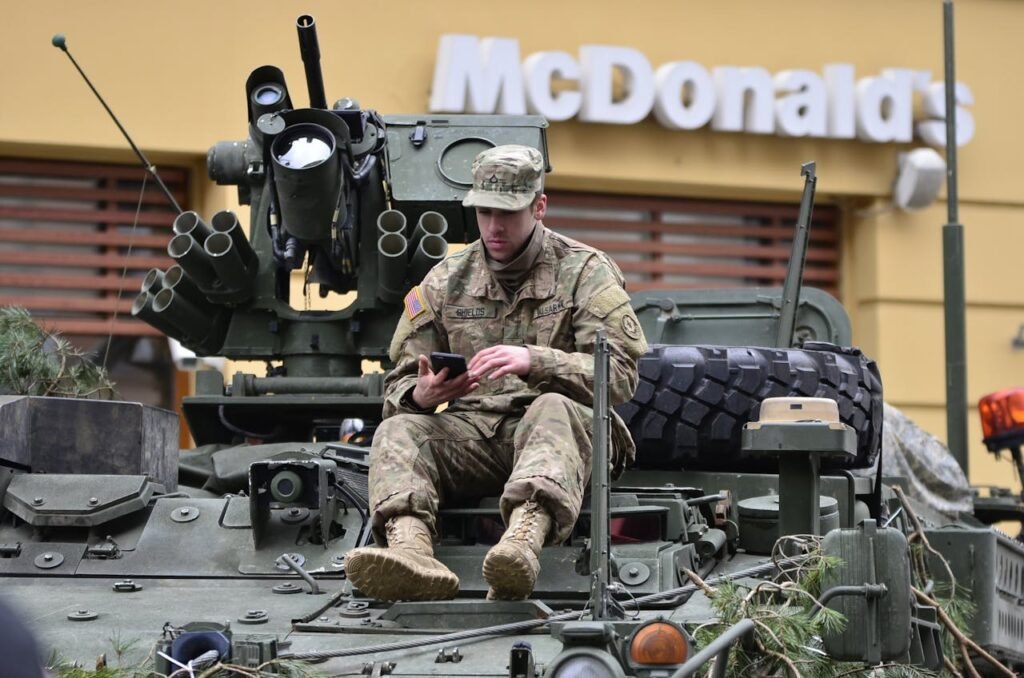Israel-Palestine Relations
Israel-Palestine Relations
There is a history full of disputes between Israel and Palestine. But recently, the month of Ramadan drew the attention of the world. During the month of Ramadan in mid-May, the Israeli police have imposed a blockade on the neighbourhood, denying entry to all Palestinians who are not its residents. Whereas Jewish can freely come and go even if they do not reside in Sheikh Jarrah. Let’s explore more about Israel-Palestine relations.

Al-Aqsa in Jerusalem is known as the third most famous religious site in the Muslim world following Mecca and Medina. During the time of prayer in Masjid-al-Aqsa, police in riot gear stormed a rally on Friday. But at the same time, due to struggle, the conflict erupted. The debate is well underway. Hamas launched a rocket attack in response to the Al-Aqsa attack, to which Israel responded, and the controversy erupted.
It has so far resulted in the death of 35 people in the Gaza Strip. Rockets are being fired from both i.e, Hamas and the Israeli military. Israel has responded to Hamas attacks, 0 it has also claimed the lives of civilians in Gaza. This is putting international pressure on Israel. But despite pressure, Israel continues to attack strongly against Hamas.
QUOTES
“The Israeli-Palestinian conflict is what happens when an irresistible force meets an immovable object. Both Israelis and Palestinians are irresistible forces, and they’re both immovable objects.”- Michael J. Totten
“I believe that in long run, the separation between Israel and the Palestinians is the best solution for resolving the Israeli-Palestinian conflict.”- Yitzhak Rabin
STATISTICS – What Numbers have to Say?
- According to the United Nations Office for the Coordination of Humanitarian Affairs (OCHA) in the conflicts between Israel – Palestine from 2008 to 2020, 5,600 Palestinians died up to 2020 while 115,000 were injured.
- In the same report, it is mentioned that 250 Israelis died during the same period while 5,600 were injured.
- During the protest in 2018, more than 28,000 Palestinians were injured.
- Out of total world countries, 83% have officially recognized Israel as a sovereign state and maintain diplomatic relations.
History Israel – Palestine conflicts
Formation of Israel
- In 1917, Britain expressed official support for a Jewish “national home” in Palestine under ‘the Balfour Declaration’ and he showed the lack of concern for the non-Jewish communities.
- During World War II, the Jews were persecuted in Europe. Jew’s problem had become extremely difficult. The issue was taken to the United Nations, which came into existence after World War II. This time the result was by the Israeli side. and Palestine as a majority of Arabs and Israel as a majority of the Jewish population was divided.
- As half of the population in Jerusalem was Muslim, while half was Jewish, the issue of Jerusalem became complicated after partition. Therefore, international control was maintained over this area.
1st Arab-Israeli War
- On May 14, 1948, Egypt, Syria, Iraq, Trans Jordan attacked Israel.
- The war continued till 1949 and ended with Israel’s victory, but in this period a total of 750,000 Palestinians were displaced and the territory was divided into 3 parts namely, the State of Israel, the West Bank of the Jordan River, and the Gaza. This threatened the very existence of the original country, Palestine.
Six-day war of 1967
- The war was between Syria, Jordan, Egypt and Israel.It was started by Egyptian President Abdel Gamal Nasser.
- At the end of this war, Israeli forces seized the Golan Heights from Syria, the West Bank & East Jerusalem from Jordan, and the Sinai Peninsula & Gaza strip from Egypt.
The October War
- In 1973, Israel was attacked by Egypt and Syria simultaneously. In this, too, Israel saved itself.
- But on the positive side, at the end of this war, Egypt accepted to have a dialog with Israel for negotiation.
- After this, Egypt recognized and respected Israel as a country, while the snatched part of Egypt was returned by Israel. All this happened under the 1978 Camp David Accords.
- But Egypt’s recognition of Israel was a controversial decision because many citizens are not happy with this stand. This led to the assassination of Egypt’s president.
- After this, the Arab countries chose the path of peace. Because, three to four times, Israel had defeated these countries.
PLO (Palestine Liberation Organization)
- This organization was founded in 1964. It was formed to centralize the leadership of various Palestinian groups that previously had operated as clandestine resistance movements.
- In 1975, The United Nations recognized the PLO and Palestinians’ right to self-determination.
- It prominently came into the picture during the six-day war. PLO was engaged in war with Israel till the 1990s when PLO along with Egypt started peace negotiation with Israel.
- The period 1987-93 is considered the first phase of the Israeli-Palestinian conflict. There have been several attacks on Israel, and Israel has responded to all of them with full strength. Many Jews and Palestinians were killed in the violence.
- In 1993, the first major peace agreement happened between Israel and Palestine. It was initiated by the then President of the United States Bill Clinton. This is called the Oslo Accords. In this agreement, Israel and the PLO agreed to recognize each other and to stop the violence.
What is Hamas?
- It was during 1987 when Hamas, which is currently attacking Israel, emerged.
- The ideology of Hamas was different from that of the PLO. Hamas strongly opposed the existence of Israel, and stated that “we do not recognize Israel,” they said. So the PLO was fighting for their rights.
- In 2006, Hamas won the Palestinian Authority elections. This divided the house between the Fatah movement, represented by President Mahmoud Abbas, and Hamas, which will control the cabinet and parliament.
- It is regarded as a terrorist organization by the U.S. government.
In 2020, the United Arab Emirates (UAE) and Bahrain agreed to normalize relations with Israel, making them only the third and fourth countries in the region following Egypt and Jordan.
What is India’s stand on Israel–Palestine Relations?
- During the discussion on the ‘partition plan’ of Israel and Palestine in the UN, India was a few of the countries that opposed the partition.
- In 1950, India recognized Israel as a country and it was also the first non-Arab country who recognized PLO, as the sole representative of the Palestinian.
- India supported the UNHRC’s resolution to probe Israel’s human rights violations in Gaza in 2014 but abstained from voting against Israel in UNHRC IN 2015.
- As a part of Link West Policy, in 2018, India decided to treat both the countries as mutually independent and exclusive.
- In 2019 Israel opposed the decision of giving consultative status to PLO in the UN Economic and Social Council (ECOSOC) and India supported Israel here.
- In recent scenarios, to date, India took a neutral stand on the conflict.
CONCLUSION
Israel and Palestine will have to accept the dual state doctrine. Historically, Jews have been massacred, large numbers of Jews have been massacred, and now the original inhabitants of Palestine are also taking refuge in other countries. Therefore, the two countries need to understand and respect each other’s emotions.
Two-way peaceful discussion is the best way for solving problems or conflicts. Continuous war affects the overall growth of the country and it leads to huge losses in terms of the lives of people, environmental and economic growth. So, Israel and Palestine should negotiate some things with each other and settle the problem. Comment your take on Israel-Palestine Relations.
Author – Vaishnavi Guntoorkar
Must Explore



